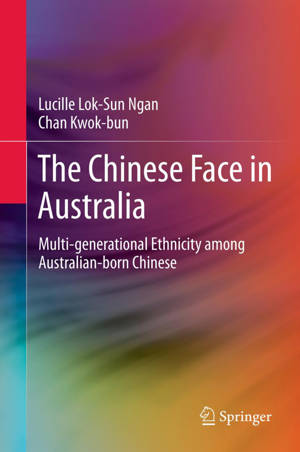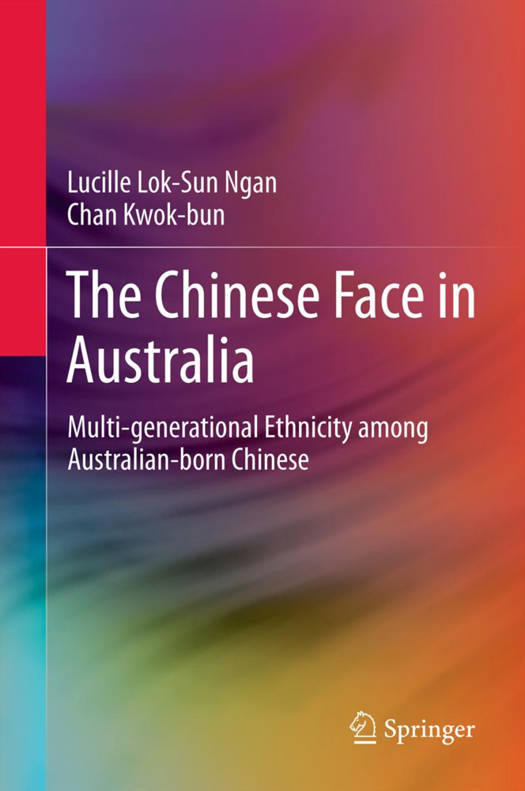
- Afhalen na 1 uur in een winkel met voorraad
- Gratis thuislevering in België vanaf € 30
- Ruim aanbod met 7 miljoen producten
- Afhalen na 1 uur in een winkel met voorraad
- Gratis thuislevering in België vanaf € 30
- Ruim aanbod met 7 miljoen producten
Zoeken
The Chinese Face in Australia
Multi-Generational Ethnicity Among Australian-Born Chinese
Lucille Lok-Sun Ngan, Chan Kwok-Bun
Hardcover | Engels
€ 139,95
+ 279 punten
Uitvoering
Omschrijving
The book explains how multi-generational Australian-born Chinese (ABC) negotiate the balance of two cultures. It explores both the philosophical and theoretical levels, focusing on deconstructing and re-evaluating the concept of 'Chineseness.' At a social and experiential level, it concentrates on how successive generations of early migrants experience, negotiate and express their Chinese identity.
The diasporic literature has taken up the idea of hybrid identity construction largely in relation to first- and second-generation migrants and to the sojourner's sense of roots in a diasporic setting somewhat lost in the debate over Chinese diasporas and identities are the experiences of long-term migrant communities. Their experiences are usually discussed in terms of the melting-pot concepts of assimilation and integration that assume ethnic identification decreases and eventually disappears over successive generations. Based on ethnography, fieldwork and participant observation on multi-generational Australian-born Chinese whose families have resided in Australia from three to six generations, this study reveals a contrasting picture of ethnic identification.
The diasporic literature has taken up the idea of hybrid identity construction largely in relation to first- and second-generation migrants and to the sojourner's sense of roots in a diasporic setting somewhat lost in the debate over Chinese diasporas and identities are the experiences of long-term migrant communities. Their experiences are usually discussed in terms of the melting-pot concepts of assimilation and integration that assume ethnic identification decreases and eventually disappears over successive generations. Based on ethnography, fieldwork and participant observation on multi-generational Australian-born Chinese whose families have resided in Australia from three to six generations, this study reveals a contrasting picture of ethnic identification.
Specificaties
Betrokkenen
- Auteur(s):
- Uitgeverij:
Inhoud
- Aantal bladzijden:
- 220
- Taal:
- Engels
Eigenschappen
- Productcode (EAN):
- 9781461421306
- Verschijningsdatum:
- 8/06/2012
- Uitvoering:
- Hardcover
- Formaat:
- Genaaid
- Afmetingen:
- 156 mm x 234 mm
- Gewicht:
- 521 g

Alleen bij Standaard Boekhandel
+ 279 punten op je klantenkaart van Standaard Boekhandel
Beoordelingen
We publiceren alleen reviews die voldoen aan de voorwaarden voor reviews. Bekijk onze voorwaarden voor reviews.











